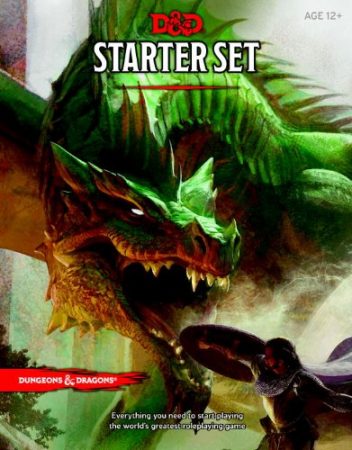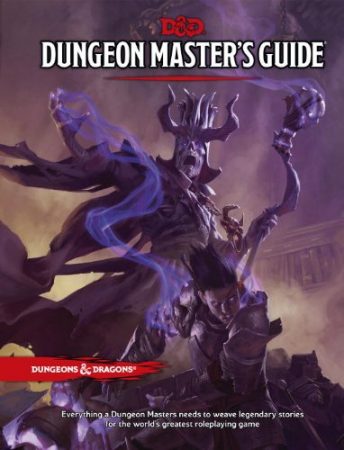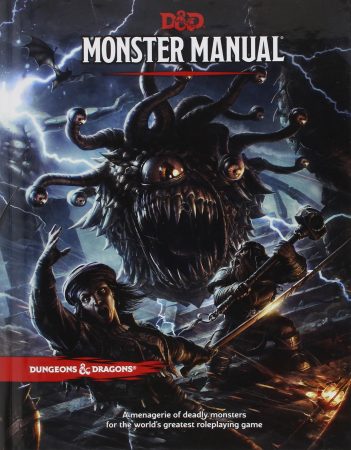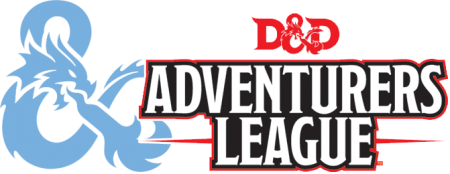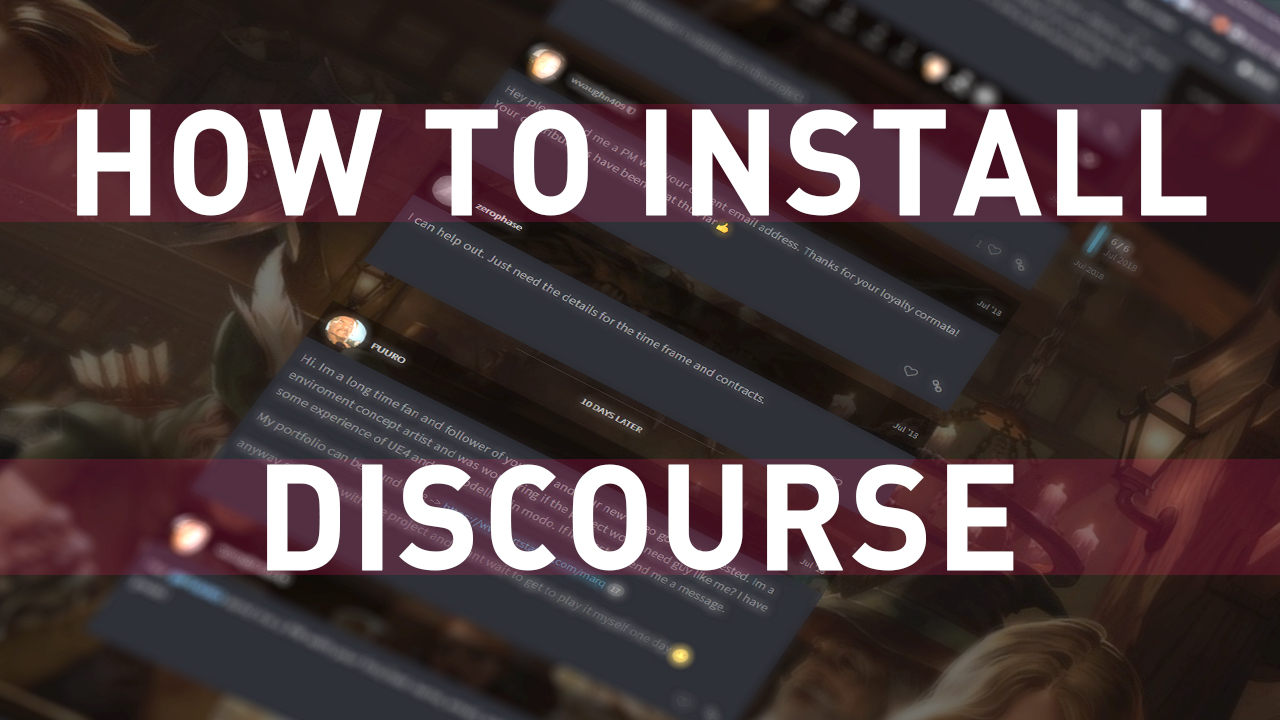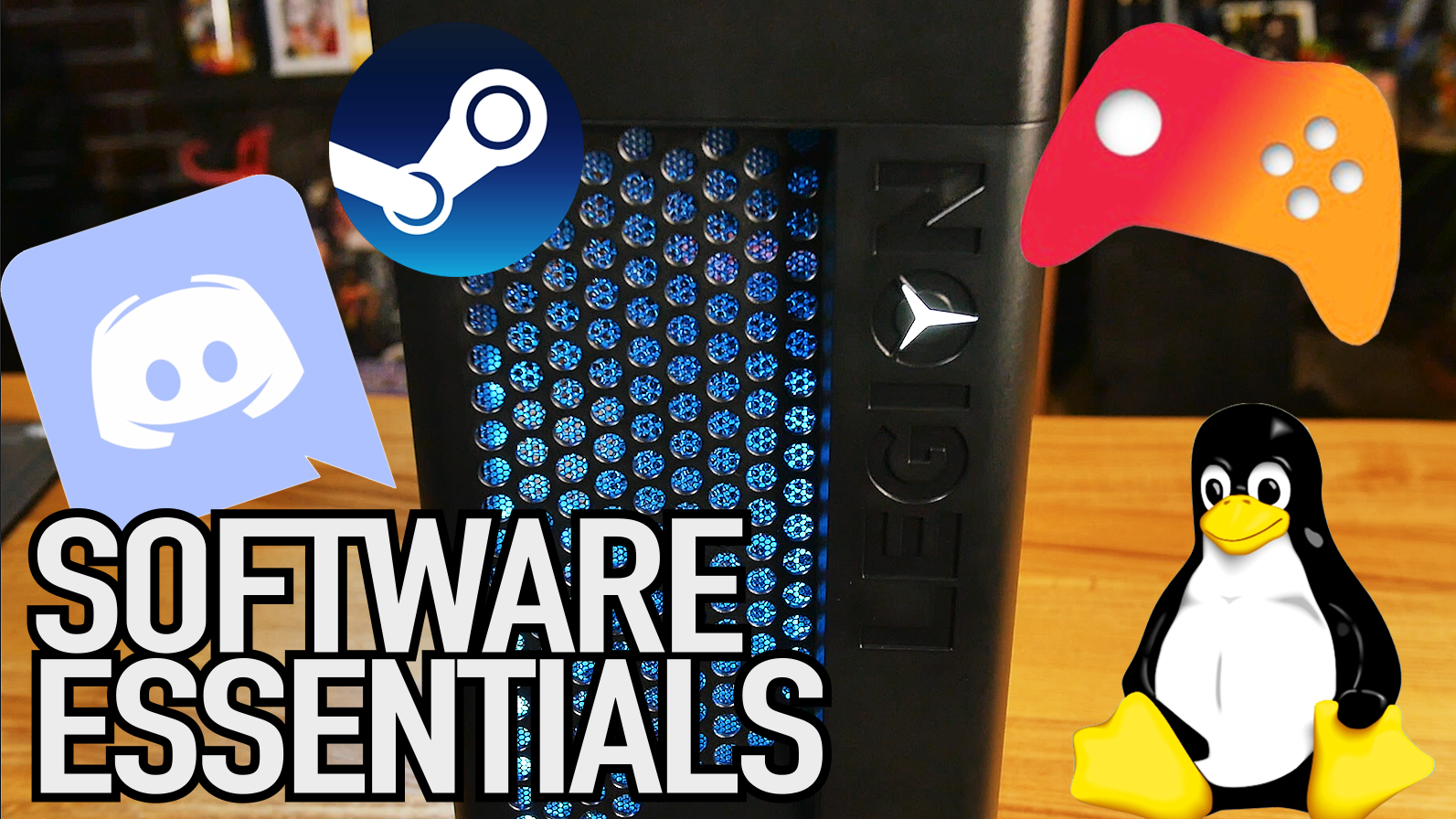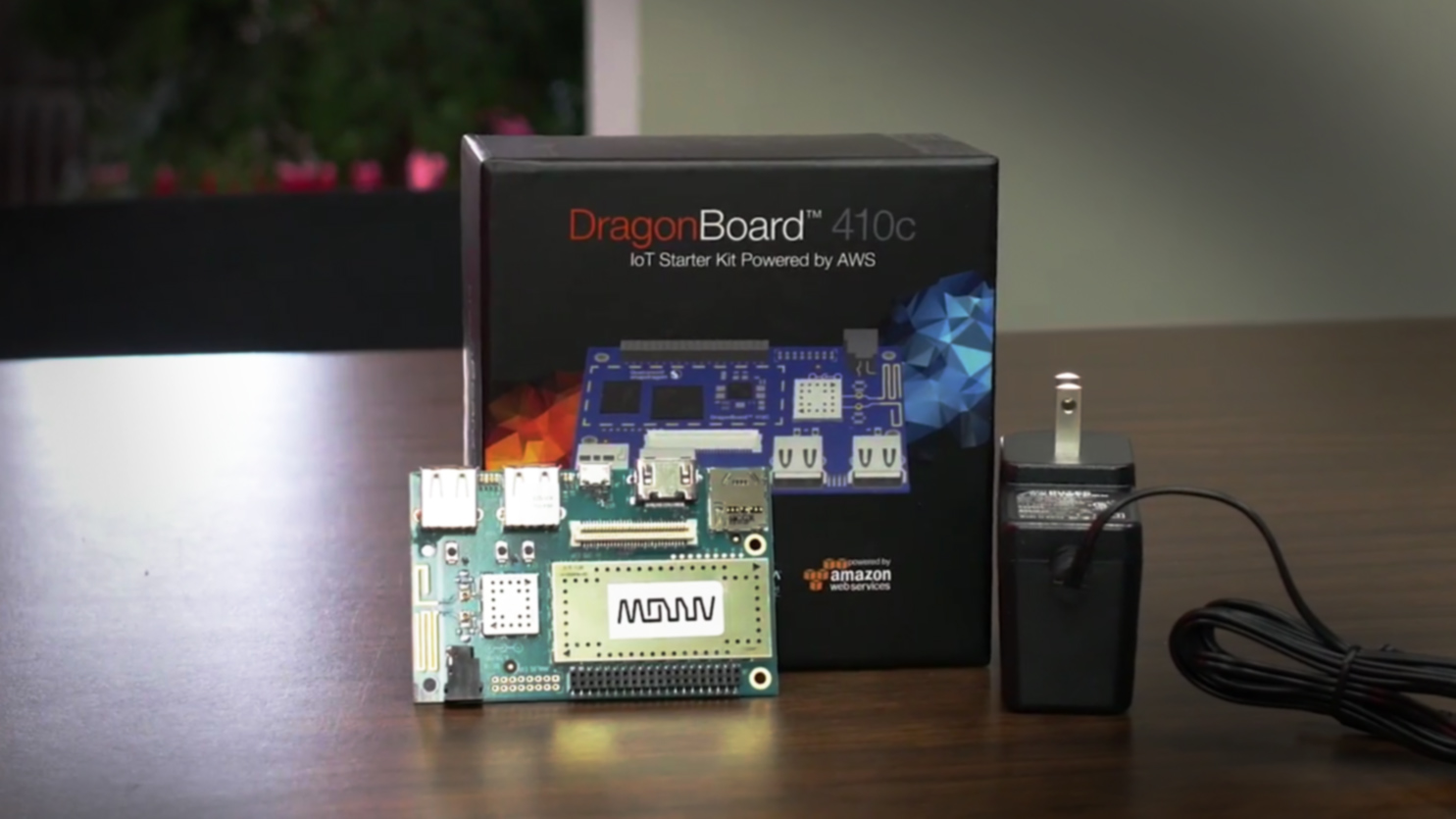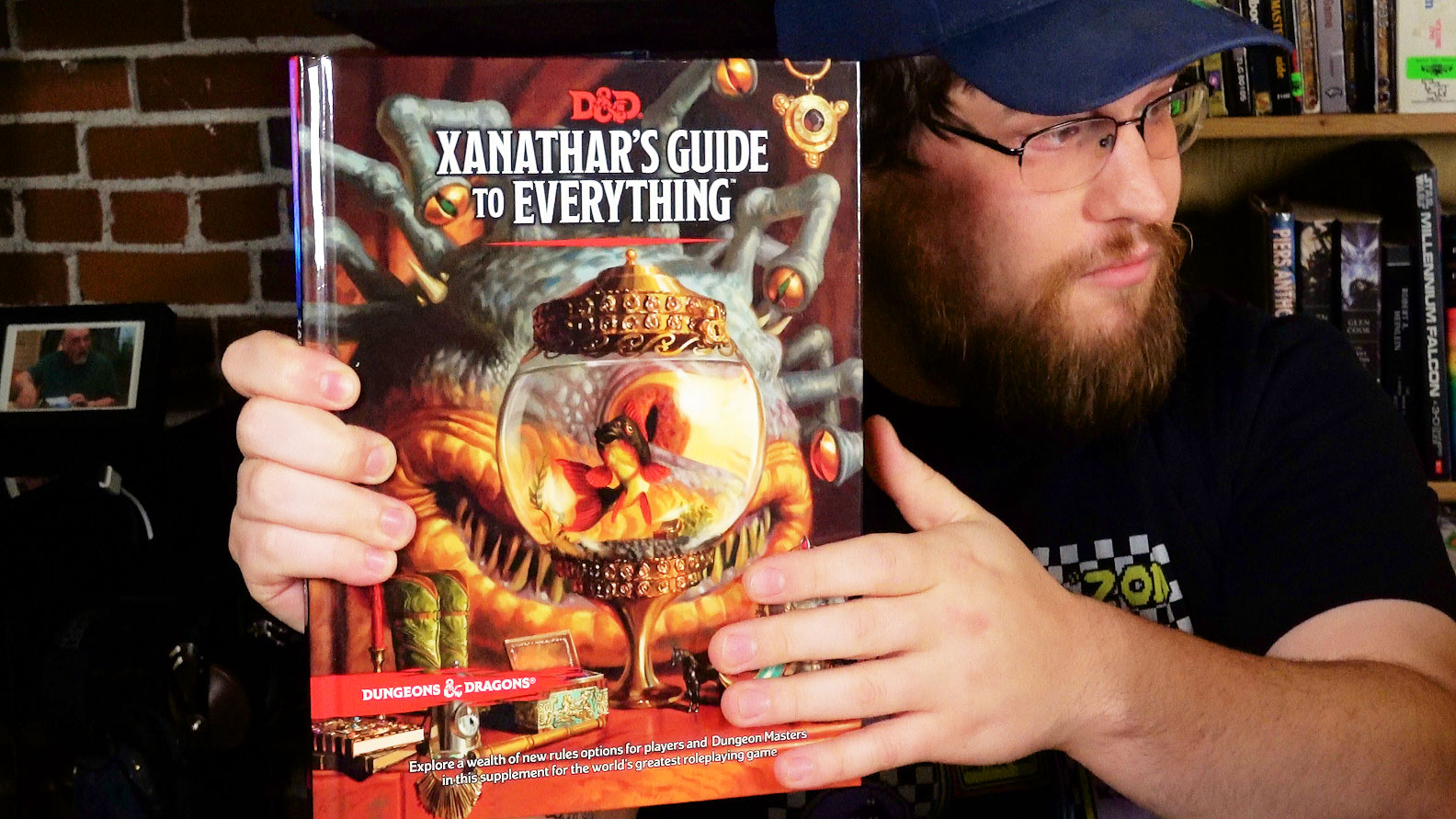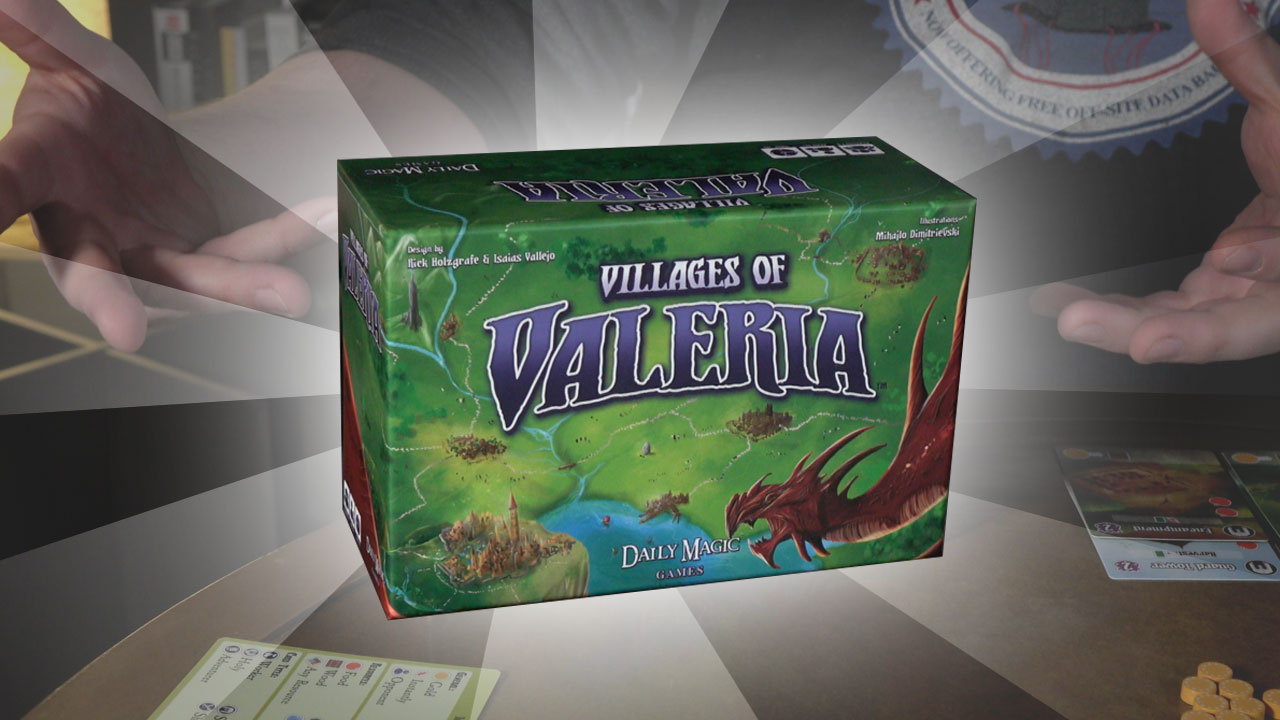Remember when Dungeons & Dragons was a game that turned wholesome young people into Satan loving demons?
Thankfully those days are long behind us (I’m sure someone’s mom still thinks this somewhere, sorry kid). D&D, along with the thousands of other Role Playing Games that have come in its wake, has gone from taboo loser activity to cultural mainstay. It was even recently inducted into the Toy Hall of Fame for being a gaming icon. D&D has been around so long that there are now generations playing it. I’ve met entire families that play the game around their kitchen table, including their 5 year old. More and more people these days have expressed interest in wanting to play, but are unsure of where to start. Well fear not, I’m here to help.
For those of you not aware of my D&D street cred let me lay it down for you: I’ve been playing RPGs for over 20 years, the majority of it being the various editions of Dugeons & Dragons. Until I started at Crit TV I was the RPG expert at the largest gaming store on the west coast, and I also DM (run D&D games) professionally. So when I say I want to help you get started, let it be known I’ve done my research.
We plan on releasing some videos soon that will have a break down of races, classes, and backgrounds to help you pick a character.
Let’s say you have some buddies and you all want to play D&D. The best bet for you would be to start here:
The D&D 5th Edition Starter Set. It comes with five pre-made characters, a basic rule rule, dice, and a mini campaign that will run your characters out to fifth level. This is literally everything needed for 2-6 people to play, except pencils. It’s ages 12+ due to content, so use discretion when playing with younguns. 5th Edition is the latest and greatest in the D&D series, and I find it to be really fun and easy to learn. It provides easy to learn rules for new players, while still packing a good enough punch for seasoned vets. You and your crew will have fun learning how to play this game using this. It’s a fun learning experience for the whole group and you need not have any previous D&D hours logged to understand what’s going on. ANYONE CAN PLAY THIS.
There are a few downsides to this guy. While it is everything 2-6 people need to play, its not for 2-6 people to play comfortably. Having one set of dice makes things time consuming. You roll A LOT in D&D, it’s better if everyone has their own. The other downside is that once you’re at the end of the module, that’s it. You’re out of material. Also, you don’t get to have the fun of making your own character unless you also purchase a Player’s Handbook. I’ll go into detail on the Player’s Handbook on the next page. If you get one of those, you can make your own characters and run them through this campaign, then continue on with them once it’s done. Players often get attached to their characters, so having to restart with new level one guys can be heart breaking something. This not doing it for you? Ready for the next step? Check out the next page!
[nextpage title=”Next Level D&D Gaming”]
Maybe you’ve finished the Starter Set, or maybe you’ve already decided that D&D is for you and you want to know the next step. It’s time to meet the holy trinity of books:
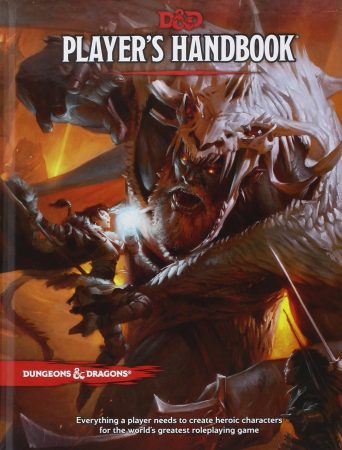 The Player’s Handbook (or PHB) is everything you need to be able to play in a D&D game. It contains all your info about races, classes. game mechanics, spells, and more. I highly recommend that everyone who wants to play go out and buy one. Ideally, if everyone sitting at your table has their own PHB, then it makes everything go so much smoother. Nobody has to wait their turn to level up, everyone can reference rules at the same time, and you can stare longingly at the tables and charts that tell you just how badass your character is going to be.
The Player’s Handbook (or PHB) is everything you need to be able to play in a D&D game. It contains all your info about races, classes. game mechanics, spells, and more. I highly recommend that everyone who wants to play go out and buy one. Ideally, if everyone sitting at your table has their own PHB, then it makes everything go so much smoother. Nobody has to wait their turn to level up, everyone can reference rules at the same time, and you can stare longingly at the tables and charts that tell you just how badass your character is going to be.
If you intend on being a spellcaster, you should have one. It has a list and all the details about all the wonderful spells you’ll be slinging at orcs. If you don’t want to be thumbing through a book constantly, there are 3rd party spell cards out out by Galeforce Nine. They’re sweet reference cards that have spells and their descriptions all sorted out by their respective class. You just pull the cards out with your spells on it and set the rest aside. You can even put them in card binders and make your own very own spell books.
The Dungeon Master’s Guide (DMG) is a book you will need only if you intend to run a D&D game. This book is designed to not only teach how to run D&D, but also world building in general. It includes even more rules information than the PHB and has all kinds of special charts, tables, and details for any Dungeon Master to help build and maintain a world. It gives you the option to make something up on your own or to have completely randomized events and places happen. It also has information on magic items, factions in the D&D world, geography, pantheons of gods, etc. This is a great resource to get a feel for the lore and universe D&D is set in.
The Monster Manual is the book that has all the info on all the bad beasts one could fight in D&D. This is another book that you would only need if you’re running a game. All the monsters’ stats are laid out for easy access. It also has info on how to build your own monsters and how to scale encounters appropriately for your part of wary adventurers. This way you wont throw an Adult Red Dragon at your 1st level party and have a TPK (total party kill).
There’s also a huge selection of modules, which are pre-written adventures with all the information a DM would need to run. Some are from Wizards of the Coast and others are 3rd party modules. These are great if you’re not feeling creative or are having difficulty building out worlds. They run the gambit from your basic goblins and dragons fantasy story line to a macabre vampire filled world, to going underground to the Underdark, a place where everything can and will kill you. That’s just the tip of the iceberg. There are all kinds of modules, so you can easily find one that suits yourself and your adventuring party. Keep in mind, most of the modules assume you have the aforementioned books already, which they will refer to regularly.
Now I know what some of you out there are thinking right now: I’m too lazy/broke to buy these books but I’d still really like to play. I don’t know anybody else who would want to play. I fear the sunlight. Well there are some great resources for you there too! Check out the next page!
[nextpage title=”Other People Want to be Wizards Too”]It can be tough to find a group of like-minded people in your area that want to hunt down Bugbears and Gnolls all night. Thankfully there are some awesome groups and sites that can help you!
The D&D Adventurers League is an officially licensed group from Wizards of the Coast. It features seasonal play, and gives you the option to earn swag as you play with your officially sanctioned characters. The league firmly states that anyone can play D&D and everyone is welcome. This is a great resource because A. It’s free and B. No previous experience is necessary. DMs usually welcome anyone to their tables and will happily teach newcomers how to play. They even have a group finder so you can find nearby groups, which are most often at your friendly local game store. This is a great way to meet other players, and I know many groups that met at Adventurers League and then went on to play their own home game. The only downside to this is there’s not always a group around you. Some of you more rural livin’ folks might not have anything near you, but that’s what you get for living in Iowa.
Roll20 is an online tabletop resource that’s well…awesome. It has tons of digital tools and programs that help you with all kinds of things. This is a great resource for anyone, even if you’re not actively looking for a party to play with. They also have tons of online RPG groups that are regularly starting new games, and not just for D&D. This is an excellent site for those of you that don’t have an Adventurers League near you, or even if you do but feel more comfortable role-playing from behind a screen.
There you go! Everything one would need to get started in the world of Dungeons & Dragons. I know, a fantasy setting may not be for everyone, but there are other genres of RPGs too. Some set in the Star Wars Universe, some in steampunk settings, some in crazy future-scapes, literally all kinds. If you have interest in these other types of games, let us know and we’ll do some follow up posts to this with other types of RPGs.
If you have any kind of RPG questions, e-mail us at [email protected], we’ll do our best to answer anything and everything!
Until next time fellow travelers, keep critting!
